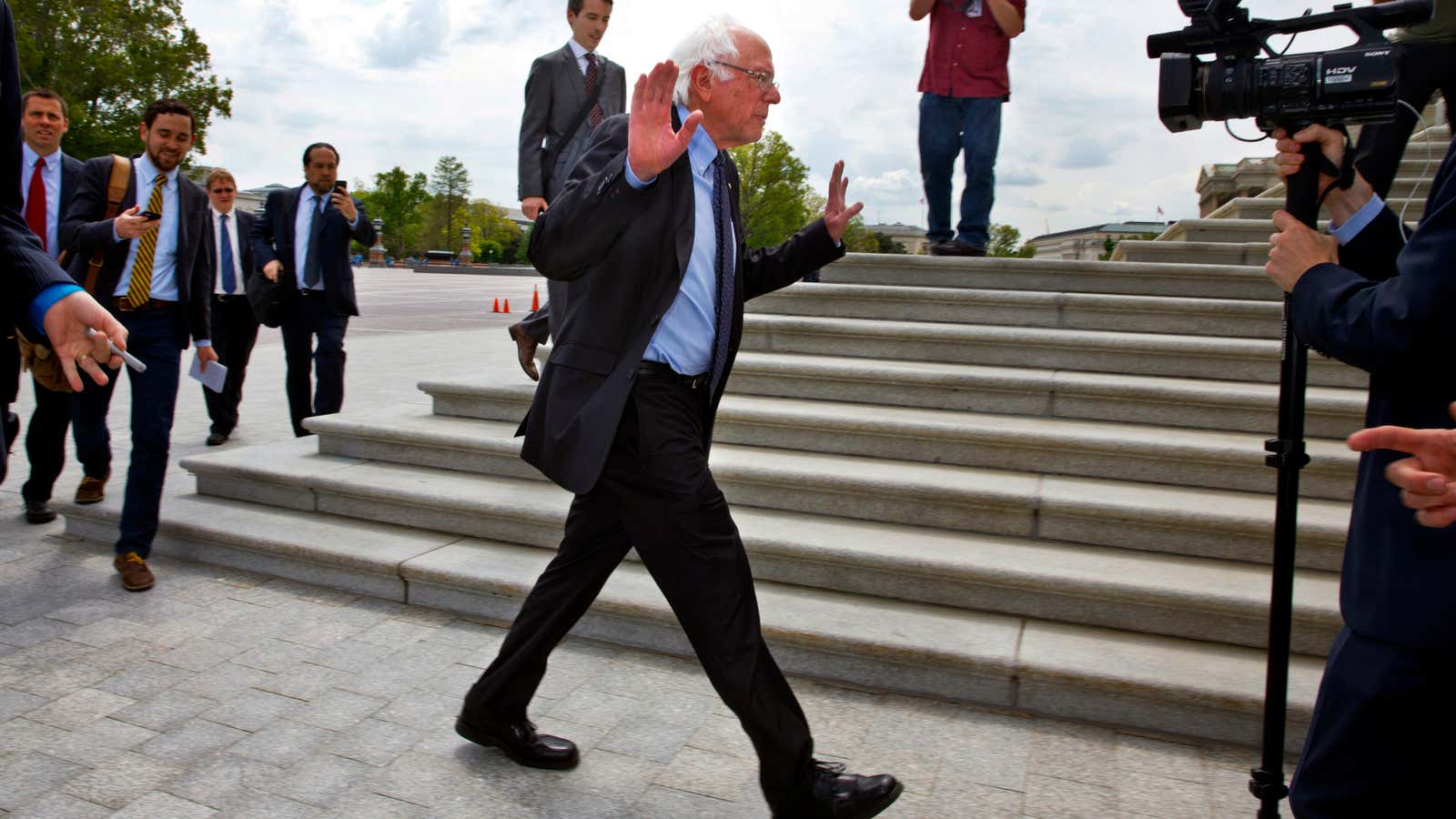Right now, the only official challenger in Hillary Clinton’s path to the Democratic presidential nomination is a 73-year-old socialist from Vermont.
Senator Bernie Sanders, the longest-serving independent in Congress, will take on Clinton (and any additional challengers who may appear before states hold their primary elections and caucuses early next year) in the name of an old backbone of Democratic politics—standing up for the worker against the corporation and the billionaire.
One supposes you can’t have a Clinton in a presidential race without revisiting the mythos of Bill Clinton and the “New Democrats,” who led the party out of the Reagan years and into an embrace of globalization that included compromises on welfare, trade, and, memorably, financial regulation. Judging by the three points of contrast Sanders drew with Clinton at the end of his first press conference, these are the debates he seems most likely to return to over the course of the campaign:
- She voted for the Iraq war, I did not. Barack Obama won his party’s nomination over Hillary Clinton in 2008 largely based on this model, and it’s still relevant today as Obama’s hopes to extricate the country from wars in the Middle East have proven more challenging than anticipated.
- She might support TPP, I don’t. The prospect of America’s involvement in the Trans-Pacific Partnership, a 12-nation trade deal, is dividing the Democratic party between its populist and business-friendly factions—and Sanders will remind progressive voters that, when the rubber hits the road, Clinton tends to find herself in the latter camp.
- She might support Keystone, I don’t. The planned pipeline between Canada and the US, which aims to introduce oil pulled from Alberta’s tar sands to US refineries, has been a touchpoint for environmentalists, even if its actual effect on the environment might be negligible. Sanders is firmly against it, while Clinton hasn’t said where she stands—even as she raises money from the biggest environmental donor in the country.
While Sanders’ success in fundraising and in public-opinion polls is eclipsed by the Clinton juggernaut, he says that only plays into his critique of a US political system too focused on big donors to deal with big issues. Sanders denies he is running to simply to force his concerns into the national conversation, or push Clinton to the left, and says he will harness grass-roots passion with the intent to win the race.
